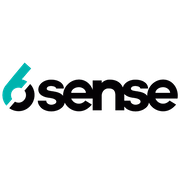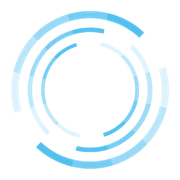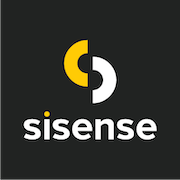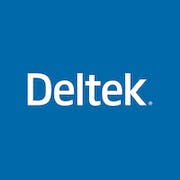In today's data-driven world, companies are increasingly relying on predictive analytics software to gain insights into customer behavior, drive operational efficiency, and make smarter business decisions. With the vast array of options available in the market, choosing the right predictive analytics software can be overwhelming. Factors such as cost, complexity, and implementation time can all play a role in the decision-making process. But fear not! In this buyer's guide, we will provide you with the information you need to make an informed decision and choose the predictive analytics software that best fits your business needs. Whether you're a seasoned data analyst or new to the world of predictive analytics, this guide has you covered. Read on to discover the power of predictive analytics and how to leverage it for your business success.
What is Predictive Analytics Software
Predictive analytics software refers to a branch of data analytics that focuses on using machine learning algorithms and statistical modeling techniques to predict future outcomes based on historical data. This form of software is specifically designed to mine data sets and extract insights that can help businesses make informed decisions. When it comes to the common use cases for predictive analytics software, there are several that are worth mentioning. They include: - Fraud Detection: Predictive analytics software can be used by financial institutions to detect fraudulent transactions by analyzing customer data and identifying patterns that indicate suspicious behavior. - Marketing: Predictive analytics software can help businesses optimize their marketing strategies by analyzing customer behavior and preferences, and using these insights to personalize marketing campaigns. - Risk Management: Predictive analytics software can be used by insurance companies to assess risk and make more accurate predictions about potential claims. - Sales: Predictive analytics software can help sales teams improve their performance by analyzing customer behavior and identifying opportunities to upsell or cross-sell. - Healthcare: Predictive analytics software can be used by healthcare providers to identify patients who are at high risk of developing certain conditions, allowing them to take preventative measures and provide more personalized care. It's worth noting that while predictive analytics software is useful in a wide range of industries, it is particularly prevalent in sectors such as finance, healthcare, and retail. Larger companies with a lot of data to analyze are also more likely to use predictive analytics software. Ultimately, predictive analytics software has become an essential tool for businesses looking to gain a competitive edge by making data-driven decisions. By analyzing historical data and identifying patterns, businesses can predict future outcomes and make informed decisions that help them stay ahead of the curve.
Benefits of Predictive Analytics Software
Predictive analytics software is becoming increasingly critical for businesses to grow and remain competitive in today's rapidly evolving market. By leveraging data from multiple sources, predictive analytics software empowers businesses to forecast future outcomes, identify key trends, and make informed decisions with greater accuracy and efficiency than ever before. Here are some of the main benefits of using predictive analytics software in your business: 1. Anticipating market trends: Predictive analytics software allows you to use past data to predict future trends, enabling you to make informed decisions about your business. This could include identifying how certain factors, such as customer behavior or market trends, may impact your business. 2. Improved customer insights: By analyzing customer data, such as buying habits and preferences, you can use predictive analytics software to gain greater insights into your customers' behavior. This can help you tailor your marketing campaigns and product offerings to better suit your customers' needs. 3. Cost savings: Predictive analytics software can help businesses cut costs by identifying inefficiencies and areas in need of improvement. By identifying these areas and making data-driven decisions, you can reduce unnecessary expenses and increase profits. 4. Enhancing fraud detection: Predictive analytics software can help a business anticipate potential fraudulent activity before it happens. By analyzing patterns and trends, predictive analytics can flag unusual behavior and help prevent fraudulent activity. 5. Better hiring decisions: Predictive analytics software can help businesses make data-driven decisions to ensure they make the best hiring choices. Predictive analytics can be used to assess candidate experience, skills, and other variables that impact a company's bottom line. In conclusion, predictive analytics software can help businesses improve their decision-making processes, better understand their customers, cut costs, and identify potential risks and opportunities. By leveraging this powerful technology, you can stay ahead of the competition and take your business to new heights.
Features of Predictive Analytics Software
Predictive analytics has become an integral part of modern data science. It involves using machine learning and statistical algorithms to analyze historical data, identify hidden correlations, and make predictions about future trends. Predictive analytics software is used by businesses of all sizes and industries to gain insights into customer behavior, optimize operations, and make better decisions. Here are some common features of predictive analytics software: 1. Data cleaning and preprocessing tools: Before conducting any analysis, it's essential to ensure that the data is clean, consistent, and free of errors. Predictive analytics software typically includes tools that help users clean and preprocess their data quickly and easily. 2. Machine learning algorithms: Machine learning algorithms are at the heart of predictive analytics software. They allow users to make predictions based on historical data by identifying patterns and relationships. Some common machine learning algorithms used in predictive analytics include decision trees, neural networks, and regression analysis. 3. Data visualization tools: Visualizations help users understand complex data and communicate their findings to others. Predictive analytics software often comes with built-in data visualization tools that make it easy to create charts, graphs, and other visualizations. 4. Real-time data analysis: Real-time data analysis is critical for businesses that operate in fast-paced environments and need to make decisions quickly. Predictive analytics software can process data in real-time, allowing users to respond to changes and trends as they happen. 5. Automated reporting: Predictive analytics software can automate the process of generating reports, saving users time and effort. Reports can be customized to fit specific needs and can be scheduled to be generated at regular intervals. 6. Integration with other tools: Predictive analytics software often integrates with other tools, such as CRM systems, marketing automation platforms, and data visualization tools. This integration streamlines workflows and enables users to analyze data from a variety of sources. 7. Customizable models: Predictive analytics software allows users to create custom models based on their specific needs and requirements. This flexibility ensures that users can tailor their analysis to fit their business needs precisely. 8. Scalability: Predictive analytics can handle large datasets and can scale to meet the needs of businesses of all sizes. Predictive analytics software is designed to work with large datasets and can handle the complex calculations required for advanced analysis. 9. Security features: Predictive analytics software often includes security features, such as user authentication, access control, and encryption. These features ensure that sensitive data is protected and that only authorized users can access it. 10. Cloud-based deployment: Cloud-based deployment enables users to access their predictive analytics software from anywhere, at any time. This flexibility allows teams to collaborate on projects, share data, and access analysis results from anywhere in the world. In conclusion, predictive analytics software has become an essential tool for businesses looking to gain a competitive edge. From data cleaning and preprocessing tools to machine learning algorithms to real-time data analysis and automated reporting, predictive analytics software offers a range of features that make analysis tasks more efficient and effective.
Considerations of Predictive Analytics Software
Predictive analytics software is an essential tool for businesses looking to analyze data in order to make informed decisions. However, there are certain factors that businesses should consider before investing in predictive analytics software. One important factor to consider is the software's ease of use. This is especially important for businesses with limited technical expertise. The easier the software is to use, the quicker businesses can get insights from their data. Another factor to consider is the software's ability to integrate with existing systems. Businesses should seek out software that can easily integrate with their existing data management systems, so that data is not siloed and can be analyzed holistically. The software's accuracy is another important consideration. Predictive analytics software should have a proven track record of producing reliable results. It's important to do your research and look for reviews or case studies that speak to the software's accuracy. Scalability is another factor to consider when selecting predictive analytics software. As businesses grow and collect more data, they need software that can handle larger data sets without compromising performance. Finally, businesses should consider the cost of the software. While cost should not be the only factor influencing decision-making, it is important to find software that fits within your budget. Some predictive analytics software solutions may be too expensive for small businesses, so it's important to find a solution that balances cost with features and capabilities. By considering these factors, businesses can make an informed decision when selecting predictive analytics software. With the right software in place, businesses can unlock insights from their data, make better business decisions, and ultimately drive growth and success.
Software Trends for Predictive Analytics Software
Predictive analytics software is a rapidly evolving field, and keeping up with the trends is essential for businesses that want to stay ahead of the competition. With new technologies and advanced data analysis techniques emerging, it can be challenging to stay up to date with the latest developments. In this section, we will discuss the biggest predictive analytics software trends for 2023 and beyond. 1. Greater Adoption of Machine Learning Machine learning is a subset of artificial intelligence that involves designing algorithms to enable machines to learn from data without explicit programming. This trend is expected to increase, with more businesses adopting machine learning to automate the analysis of large datasets and make data-driven decisions. 2. Increased Use of Augmented Analytics Augmented analytics leverages machine learning and natural language processing to assist business analysts in predicting trends, identifying outliers, and making data-driven decisions. This trend is growing in popularity as businesses seek to leverage data to gain a competitive advantage. 3. More Emphasis on Real-Time Analytics The ability to analyze data in real-time is becoming increasingly important for businesses. Real-time analytics allows businesses to make data-driven decisions on the fly, with insights delivered in real-time to decision-makers. 4. Adoption of Automated Data Wrangling Data wrangling refers to the process of transforming and cleaning raw data into a format suitable for analysis. As data volumes continue to grow, data wrangling is becoming more challenging. Automated data wrangling is a trend that is expected to increase, with more businesses adopting tools that automate the data wrangling process. 5. Increased Focus on Predictive Maintenance Predictive maintenance is the use of data to predict when a machine or equipment is likely to fail, enabling maintenance teams to proactively address issues before they become serious. This trend is gaining momentum, with more businesses adopting predictive maintenance as a way to reduce downtime and extend the life of their equipment. 6. Greater Use of Prescriptive Analytics Prescriptive analytics is a form of analytics that involves using data to make recommendations about what actions to take. This trend is growing in popularity as businesses seek to use data to drive decision-making at a strategic level. In conclusion, with advances in technology and data analysis techniques emerging all the time, businesses must stay on top of the latest predictive analytics software trends to remain competitive. The trends we've discussed here represent just a few of the areas where we expect to see continued growth and development in the years ahead. By staying up to date with these trends, businesses can leverage predictive analytics software to gain valuable insights and make data-driven decisions.








